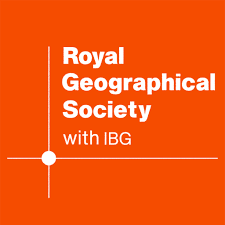Reimagining the Higher Education Student: online book launch
Thursday, 22ndApril 2021 (08.00-10.00 UK time; 17.00-19.00 Sydney time)
Reimagining the Higher Education Student, edited by Rachel Brooks and Sarah O’Shea, seeks to question the accepted or unquestioned nature of ‘being a student’ and instead foreground the contradictions and ‘messiness’ of such ideation. Given the increasing number and diversity of higher education students, the book offers a timely discussion of the implicit and sometimes subtle ways that they are characterised or defined.
In this launch event, we will provide an overview of eight of the book’s chapters, as well as some of the overarching themes addressed by the volume as a whole. The first session will focus on constructions of students in Australasia, and the second on students in Europe.
Session 1. 08.00-09.00 (UK time); 17.00-18.00 (Sydney time)
- Sally Patfield, Jenny Gore and Leanne Fray: On becoming a university student: Young people and the ‘illusio’ of higher education
- Matt Lumb and Matthew Bunn: Dominant higher education imaginaries: forced perspectives, ontological limits and recognising the imaginer’s frame
- Thornchanok Uerpairojkit and James Burford: Constructions of náksèuk-saˇa: Tracing contested imaginings of the Thai university student
- Paola R.S. Eiras and Henk Huijser: Exploring spaces in-between: reimagining the Chinese student in a transnational higher education context in China
Session 2. 09.00-10.00 (UK time); 18.00-19.00 (Sydney time)
- Emily Danvers and Tamsin Hinton-Smith:The shifting subjectification of the ‘widening participation’ student: the affective world of the ‘deserving’ consumer
- Kay Calver and Bethan Michael-Fox: Constructing the university student in British documentary television
- Elisa Alves and Russell King: Between international student and immigrant: a critical perspective on Angolan and Cape Verdean students in Portugal
- Anu Lainio and Rachel Brooks: Constructing students as family members: contestations in media and policy representations across Europe
You are welcome to join us for one or both hours. Please register for a place here. Once you have registered, you will receive a confirmation email containing a link to the meeting.

 In June, we ran a successful seminar at the University of Surrey exploring the ways in which creative and visual methods can be used to research across difference. We are pleased to announce that various materials from the seminar (including films, audio recordings and slides) are now available
In June, we ran a successful seminar at the University of Surrey exploring the ways in which creative and visual methods can be used to research across difference. We are pleased to announce that various materials from the seminar (including films, audio recordings and slides) are now available  We are delighted that our proposal for a symposium at the Royal Geographical Society-Institute of British Geographers Annual Conference (29th August-1st September 2017) has been accepted. The title of the symposium is ‘Constructing the higher education student: understanding spatial variations’ and the abstract can be found
We are delighted that our proposal for a symposium at the Royal Geographical Society-Institute of British Geographers Annual Conference (29th August-1st September 2017) has been accepted. The title of the symposium is ‘Constructing the higher education student: understanding spatial variations’ and the abstract can be found